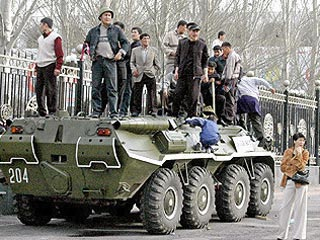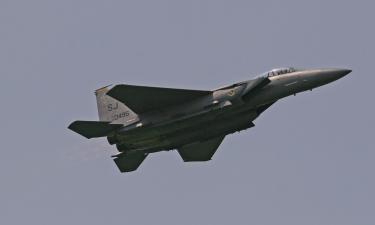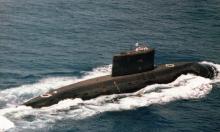Russia unable to handle the problem of rebellious regions
A powerful opposition movement or firm ideology is not needed for a coup now
Sergei Mironov, the chairman of Russia's Federation Council, has unveiled an important state secret. The politician stated on Saturday that three-fourth of federal budget transfers would be wired to only three republics – Bashkortostan, Tatarstan and Chechnya. 
It obviously goes about the well-known practice to subdue a possible aggravation of the social situation in Russia's most problematic regions with the help of financial interventions. Recent massive actions of protest in Bashkortostan and Ingushetia showed that the Russian federal budget would not be enough to cope with such questions: the problematic zone has already extended from the Northern Caucasus to Muslim republics northwards (Bashkortostan and Tatarstan).
Recent revolutions, which took place on the territory of post-Soviet states, have their echo in Russia already, albeit in most troublesome regions and republics so far. The Ukrainian experience demonstrated that the Western society can approve and support radical actions to change power in the country. Recent events in Kyrgyzstan, however, have become a lesson of a different kind. It has been proved now that there is no need in a powerful opposition movement, firm ideology and massive support of the population. If the regime is experiencing the final stage of its decline, it will collapse like a house of cards under the pressure of even a small, albeit decisive crowd of several thousands of people. It is enough to convince an impoverished nation that the power in their country is corrupt, weak and not able to function. This situation is being currently formed in the Northern Caucasus and in many Muslim republics of Russia.
The situation in Russian Muslim republics started worsening long before massive rallies swept across Kyrgyzstan (excluding the long-lasting war in Chechnya). Massive anti-governmental riots took place in the republic of Daghestan in July of 2004. The rallies were organized by the mayor of Khasavyurt – the police refused to dispel the protesters and took their side.
Actions of protest started happening in the republic of North Ossetia after the monstrous hostage drama in Beslan. The people demanded the resignation of the republic's President, Alexander Dzasokhov. Massive meetings took place in the Kalmikia republic, where the opposition had the same requirement. Local newspapers wrote that the unauthorized meetings bore some resemblance to a mutiny. Special police units and internal troops broke up the largest rally on September 21st overnight: several people were killed and injured in the clash with the troops.
Massive actions of protest gripped the republic of Karachay-Cherkessia at the end of October of 2004. People protested against the concealment of severe crimes in the republic. Several parliamentarians of the local opposition had been killed in the country house of the president's relative. More than 300 people broke into the building of the presidential administration and asked for a personal meeting with the head of state.
About 20,000 people poured out into the streets of Ufa, the capital of Bashkortostan, on March 26th, 2005. The people were prepared to storm the building of the republic's government. The opposition demanded the resignation of the Bashkir President, Murtaza Rakhimov. The opposition of the republic plans to start the national action of protest on May 1st of the current year.
A pre-revolutionary situation is characterized with the following factors: the tremendous social segregation and weariness of the longstanding regime of one and the same political group. The second aspect can be found in Tatarstan and Bashkortostan. Ruling groups have been changing periodically in Russia's Northern Caucasus, but the region suffers from poverty, the population explosion, unemployment, the absolute corruption, etc. Furthermore, Chechnya and the growing popularity of radical Islamic ideology is playing a destabilizing role in the region.
Deputy general director of the center for political technologies, Aleksei Makarkin, believes that all recent massive actions of protest were meant to attract attention of the federal center: “People want the federal center to interfere, establish law and order, remove current administrations and appoint new ones. The elite groups of the opposition in Ingushetia and Bashkortostan do not want to use military methods to solving the problems. They realize that it will discredit them in the eyes of the federal administration,” the specialist said.
Aleksei Makarkin is certain that the Russian administration will not follow the requirements of republican opposition movements. The latter, however, will continue playing their games, hoping that Moscow will soon run out of patience: nobody needs to receive only negative news from the Caucasian region all the time.
The Russian federal administration, however, does not have a solution for the above-mentioned problems in the regions.
Subscribe to Pravda.Ru Telegram channel, Facebook, RSS!




